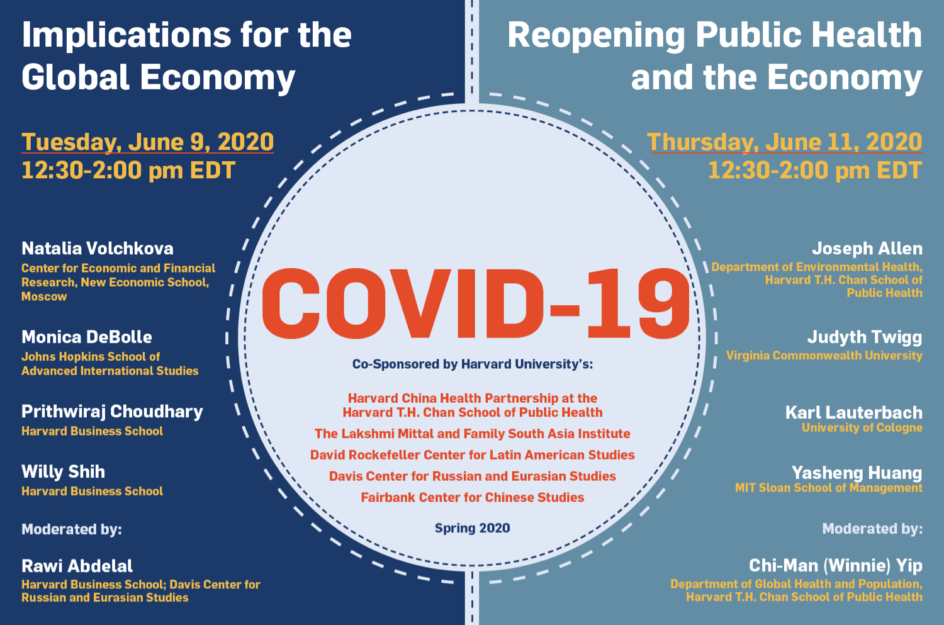COVID-19 has created a major and lasting impact on the global economy. Experts on five of the world’s major economies—the United States, Brazil, Russia, India, and China — discussed the uneven economic shock of the global pandemic, as well as how these economies might recover in the coming years.
Speakers:
Natalia Volchkova, Assistant Professor and Policy Director, Center for Economic and Financial Research, New Economic School, Moscow
- Presented on the COVID-19 pandemic response in Eastern Europe. Much like other countries, the Russian fiscal response to the pandemic reproduced existing patterns of fiscal relationships between the state, economy, and society. For example, economic stimulus policies more easily reached families with children because of existing networks.
Monica DeBolle, Adjunct Lecturer, Latin American Studies Program, Johns Hopkins School of Advanced International Studies
- Expounded on the varied responses in Latin America to combat the COVID-19 pandemic. The pandemic was met with a lack of preparation though the warning signs were available. Vulnerable segments of the population have been hit the hardest by the pandemic. There is not a clear path to policy making both on the health and economic front. To address increasing inequality during this time, several countries are considering and/or bolstering their emergency basic income programs such as in Ecuador, Chile, and Brazil.
Prithwiraj Choudhary, Lumry Family Associate Professor of Business Administration, Harvard Business School
- Provided insight on remote work and geography of work research focusing on trends in the United States and India. There is a difference between work-from-home that predates the COVID-19 pandemic and the emerging work-from-anywhere trend. With work-from-home you are still visiting a physical office at least three times a week. With work-from-anywhere, which is what the U.S. patent office did starting in 2012, there are no constraints on location and no requirement to come back to a physical office.
Willy Shih, Robert and Jane Cizik Professor of Management Practice in Business Administration, Harvard Business School
- Addressed the interdependence of economies and the global supply chain. The global reliance on China for products such as personal protective equipment and pharmaceuticals was made center by the pandemic. Many countries are now leading talks about diversification of the supply chain to a China plus one or more model. China’s manufacturing sector has recovered quickly. It is yet to be seen what will be the results of the global demand shortfalls.
Moderator:
Rawi Abdelal, Herbert F. Johnson Professor of International Management, Harvard Business School; Director, Davis Center
Co-sponsored by the Harvard China Health Partnership, Davis Center for Russian and Eurasian Studies, Fairbank Center for Chinese Studies, David Rockefeller Center for Latin American Studies, and the Lakshmi Mittal and Family South Asia Institute.
Resources
– A recording of the event is available here.

